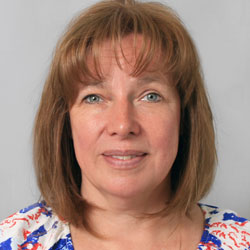Mozambique
The Context
Mozambique emerged from civil war 25 years ago as one of the most impoverished countries in the world. But since then it has registered impressive economic growth, with an annual GDP growth rate above seven per cent in the last five years. Growth has been sustained by market-based reforms, massive public investment in infrastructure and large flows of foreign direct investment.
Yet about 60 per cent of the country’s population of over 27 million lives in poverty. They lack access to basic services such as safe water, health facilities and schools.
More than 70 per cent of poor households live in rural areas in Mozambique. Farming is their main source of food and income, but productivity is low.
Farmers and fishers generally make enough to meet their households' basic food requirements, with a small surplus for sale in some cases. Incomes are meagre, and most of the rural population survives at subsistence level.
From 2010 to 2013, the agriculture sector contributed about 30 per cent of GDP and represented 25 per cent of total exports (food and agricultural raw materials). It is the main source of income for more than 70 per cent of the population and provides employment for 80 per cent of the workforce.
Low agricultural productivity results from a lack of appropriate technologies, with farmers dependent on traditional farming methods, low-yield seed varieties and manual cultivation techniques. Markets are generally inaccessible to smallholder farmers.
Women are particularly disadvantaged in rural communities. They have considerably less access to education than men and thus fewer skills. Health care is inadequate, and death in childbirth is common.
Most rural women play a crucial role in growing food crops and generating income for their families. Yet they have little access to productive resources or control over them.
Poor rural households are particularly vulnerable to natural disasters such as droughts and floods, which periodically beset the southern and central areas of Mozambique. Such events expose vulnerable people to food insecurity since they have few income-generating alternatives to agriculture.
The Strategy
In Mozambique, IFAD-supported loans help to integrate small-scale producers into profitable and accessible markets.
Our strategy is fully aligned with all government strategic objectives as laid out in the poverty reduction action plan and in the sector strategy for agriculture, artisanal fisheries and rural finance.
IFAD’s country strategic opportunities programme, approved in 2011, sets out a results-based strategic framework. Activities target poor producers who have the potential to expand and commercialize their activities, with a special emphasis on disadvantaged groups such as women and young people.
To achieve this, we have focused on three strategic objectives:
- improving access of smallholder farmers and artisanal fishers to technologies and services that increase productivity;
- increasing participation in markets for an equitable share of profits; and
- increasing access to sustainable financial services in rural areas.
IFAD also engages in policy dialogue when relevant issues emerge from project operations. In addition we help build the capacity of communities to participate in policy dialogue processes.
Country Facts
Agriculture is the main source of income for more than 70 per cent of Mozambique’s population and provides employment for 80 per cent of the workforce.
Most rural women work in agriculture and play a crucial role in growing food crops and generating income for their families. Yet they have little access to or control over productive resources.
Since 1983, IFAD has invested US$243.9 million to finance 12 projects and programmes in Mozambique, benefiting almost 2.2 million households
